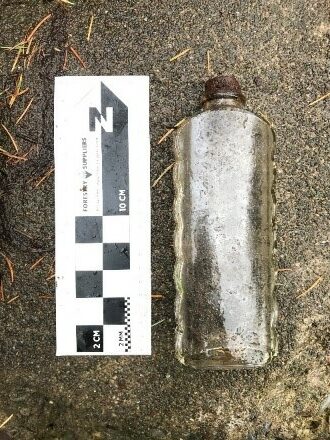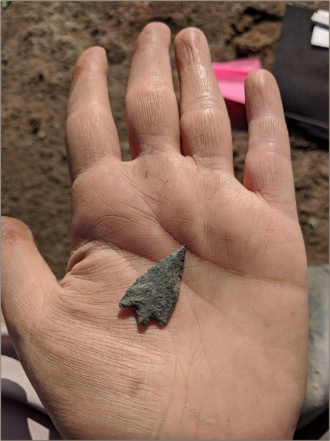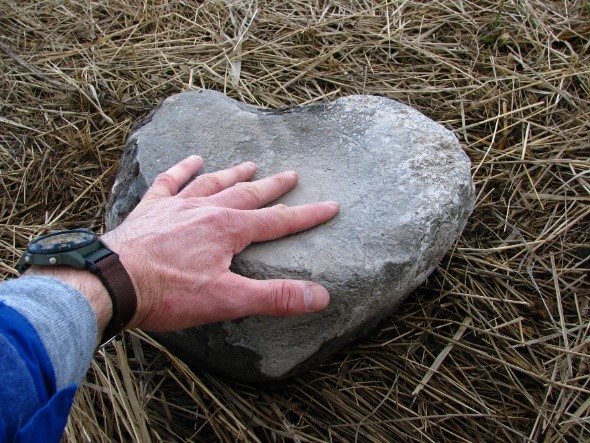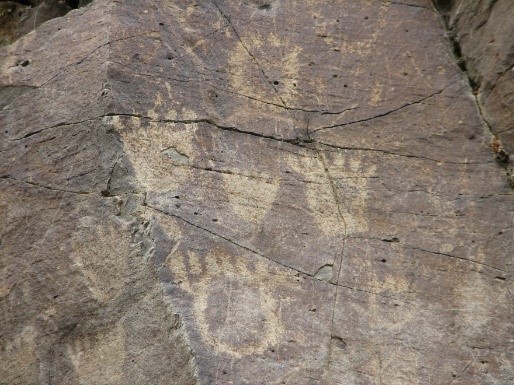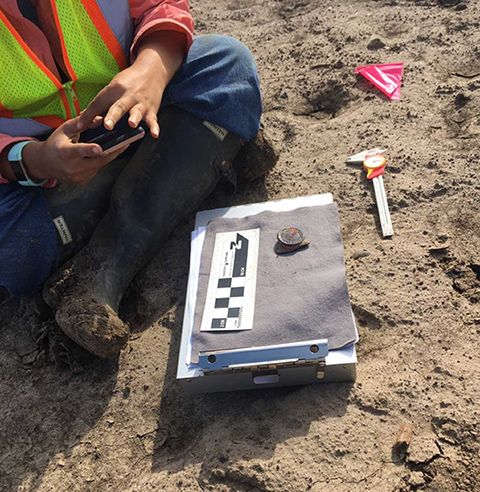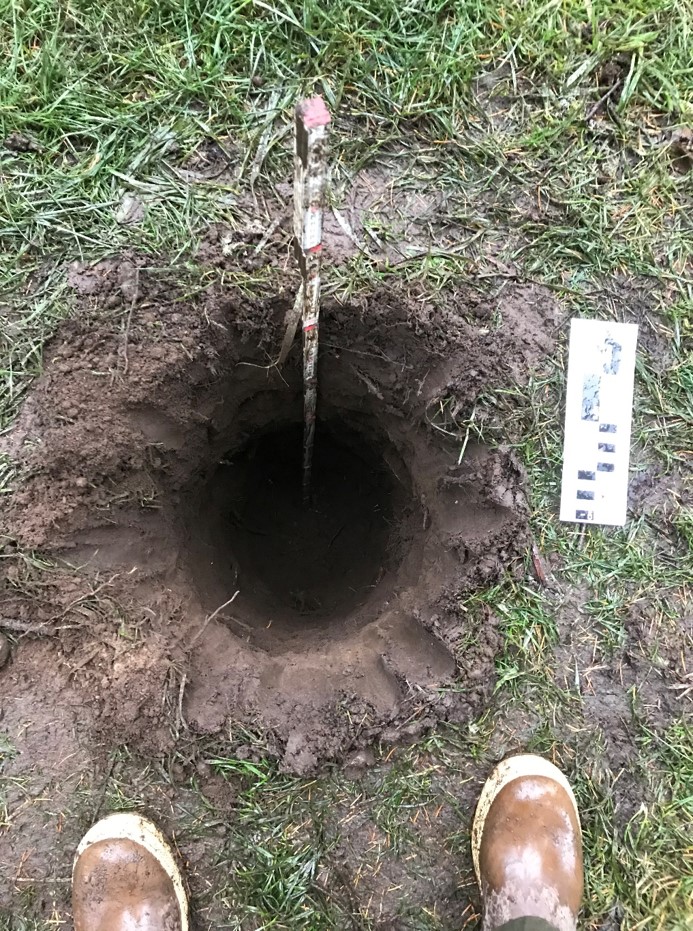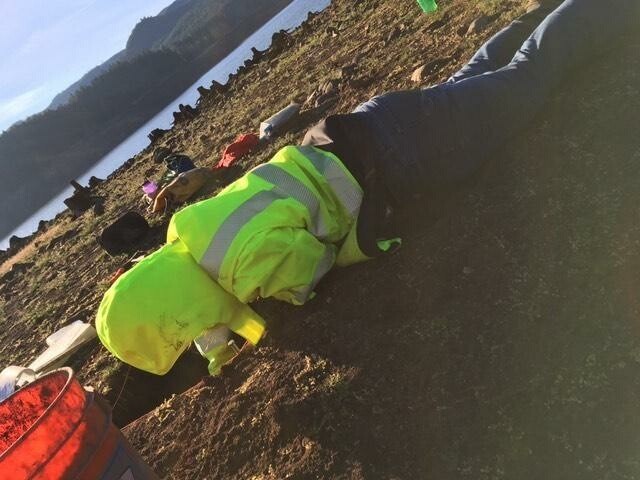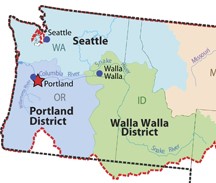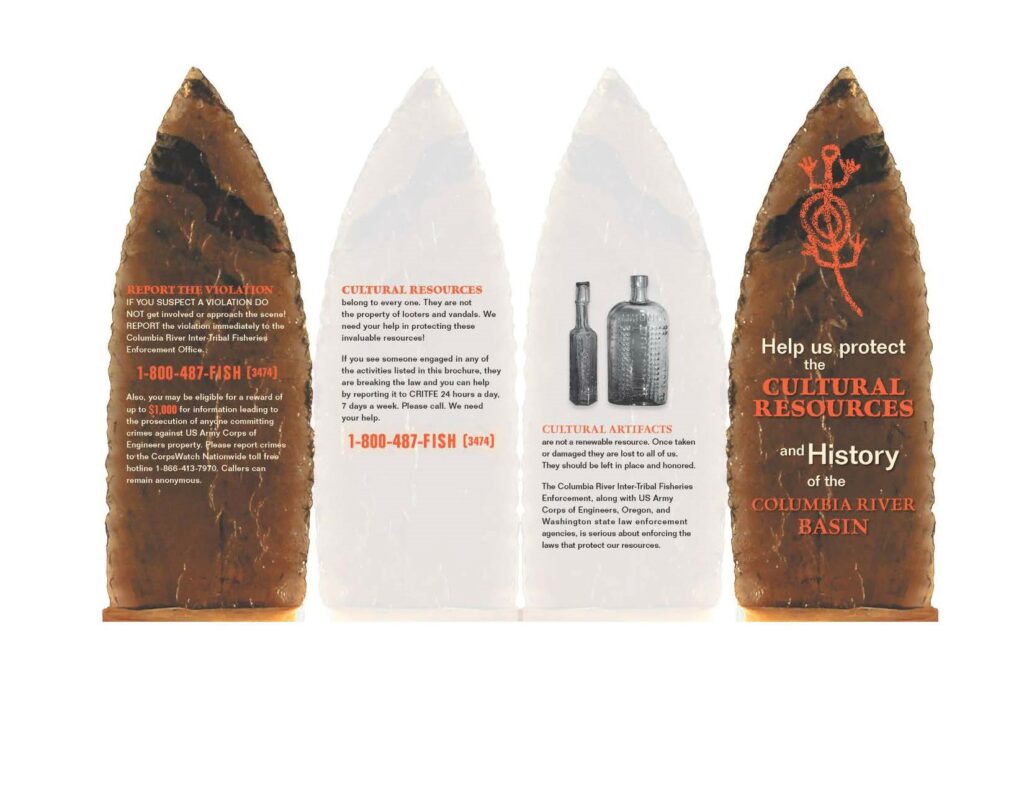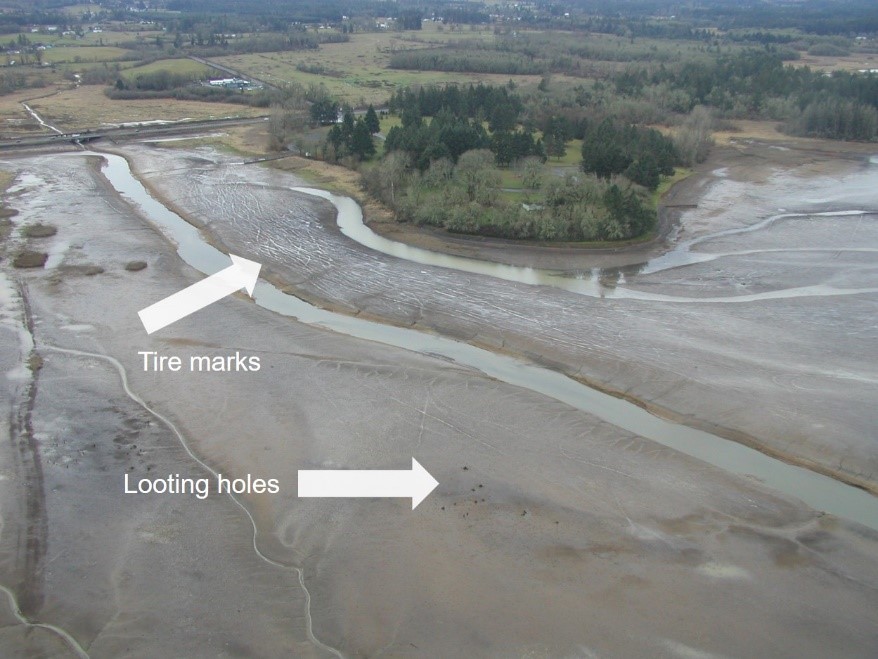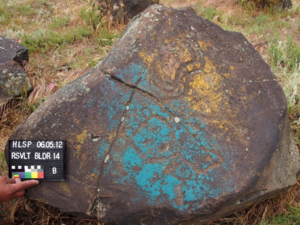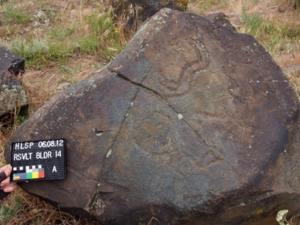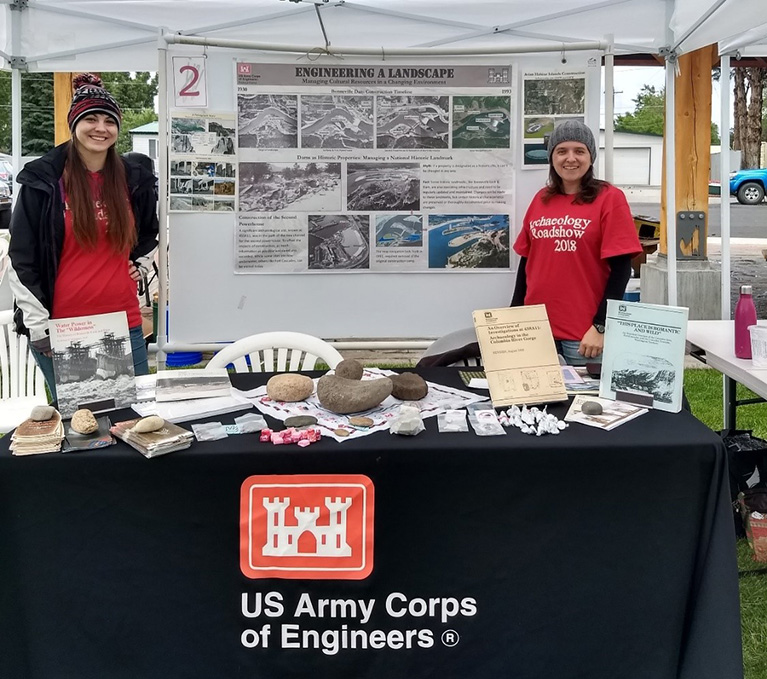ARPA recognizes that archaeological resources are an irreplaceable part of America’s heritage and are threatened when people destroy sites and steal artifacts. Earlier laws, like the 1906 Antiquities Act and the 1966 National Historic Preservation Act, did not fully protect sites from illegal digging. Since 1979, ARPA has protected archaeological resources on public and Indian lands.
ARPA applies to artifacts and archaeological sites. These include arrowheads, pottery, basketry, bottles, weapons, buildings, pit houses, rock paintings, rock carvings, and graves that are more than 100 years old. The law does not include protection for ancient animal remains that are not associated with humans… so no, archaeologists don’t dig dinosaurs!
Examples of archaeological resources. Everything from arrowheads to bottles, rock art to lighthouses. Photos from U.S. Army Corps of Engineers and Oregon Parks and Recreation Department.
ARPA has two key parts:
- Federal land managers can issue permits for excavating or removing archaeological resources. Usually this is related to projects or scientific research.
- Damage of archaeological sites or artifacts on public or Indian lands and the sale or exchange of archaeological resources is illegal. If a person violates ARPA they could face fines or prison time.
Who protects archaeological sites?
The U.S. Army Corp of Engineers, Portland District, as a federal land manager, is responsible for protecting archaeological resources on their property. The Corps works with Indian tribes, state historic preservation offices, and the public to prevent harm to archaeological sites and artifacts.
Archaeological survey on Portland District property. Photos from U.S. Army Corps of Engineers.
Where does ARPA protect archaeological sites?
ARPA protects sites on federal land. Federal land is owned by the United States Government. While some states, like Oregon, have similar laws to protect sites on state, county, and private lands, the Corps uses ARPA to safeguard archaeological sites on Corps managed federal land.
Portland District covers a large part of Oregon and southern Washington. Image from U.S. Army Corps of Engineers.
ARPA & U.S. Army Corps of Engineers, Portland District
Working closely with Indian tribes and other partners, the Portland District does several things to help protect sites and ensure compliance with ARPA.
- Permits: The Portland District issues permits for the excavation or removal of archaeological resources on federal lands under their management. Permits are most often related to projects on federal lands but can also be issued to schools or universities for scientific research.
Protection: Ensuring the location of archaeological sites and resources remains confidential is one of the first steps to protect sites from damage. Portland District works to stabilize sites to prevent erosion or the exposure of artifacts, which helps to preserve history and prevent looting.
Prosecution: Unfortunately, people steal artifacts and spray paint graffiti on important sites on Corps property. When someone breaks these rules, the Corps may take someone to court or fine them for the damage. Park Rangers are trained to be on the lookout for individuals who damage sites.



Education: The Portland District has developed great educational tools (like this Archaeology Roadshow presentation!) to teach the public about ARPA and the importance of archaeological resources. Education and outreach are important tools in making sure that the law is carried out.
How can YOU help protect archaeological sites and artifacts?
Protecting our shared heritage and archaeological resources requires all of us to work together. Here are some things that YOU can do to help Portland District and other public land managers protect archaeological sites and artifacts for future generations:
See something, document that something, then say something! If you see something that looks like a damaged archaeological site, take note of the location and call the Corps Watch National Hotline at 1-866-413-7970. Do not move anything.
Talk to a federal agency! If you are an aspiring archaeologist and want to try out a trowel, contact a federal land manager and see if they have volunteer opportunities, like Passport in Time. Universities also host field schools that are a great opportunity to get digging. ARPA doesn’t mean that archaeology can’t happen… it just has to happen the right way.
Show respect! If you are out enjoying public lands, be mindful of your actions. Stay on trails. Don’t leave marks or paint petroglyphs. Leave anything that looks like an artifact where it is.
Before and after – Rock art graffiti. Photos courtesy of U.S. Army Corps of Engineers.
Share! Talk to your family and friends about all the great things you learned at the Archaeology Roadshow. Protecting archaeological sites isn’t just the law. These resources are irreplaceable, endangered, and part of our shared heritage!
See you at the 2022 Archaeology Roadshow!

